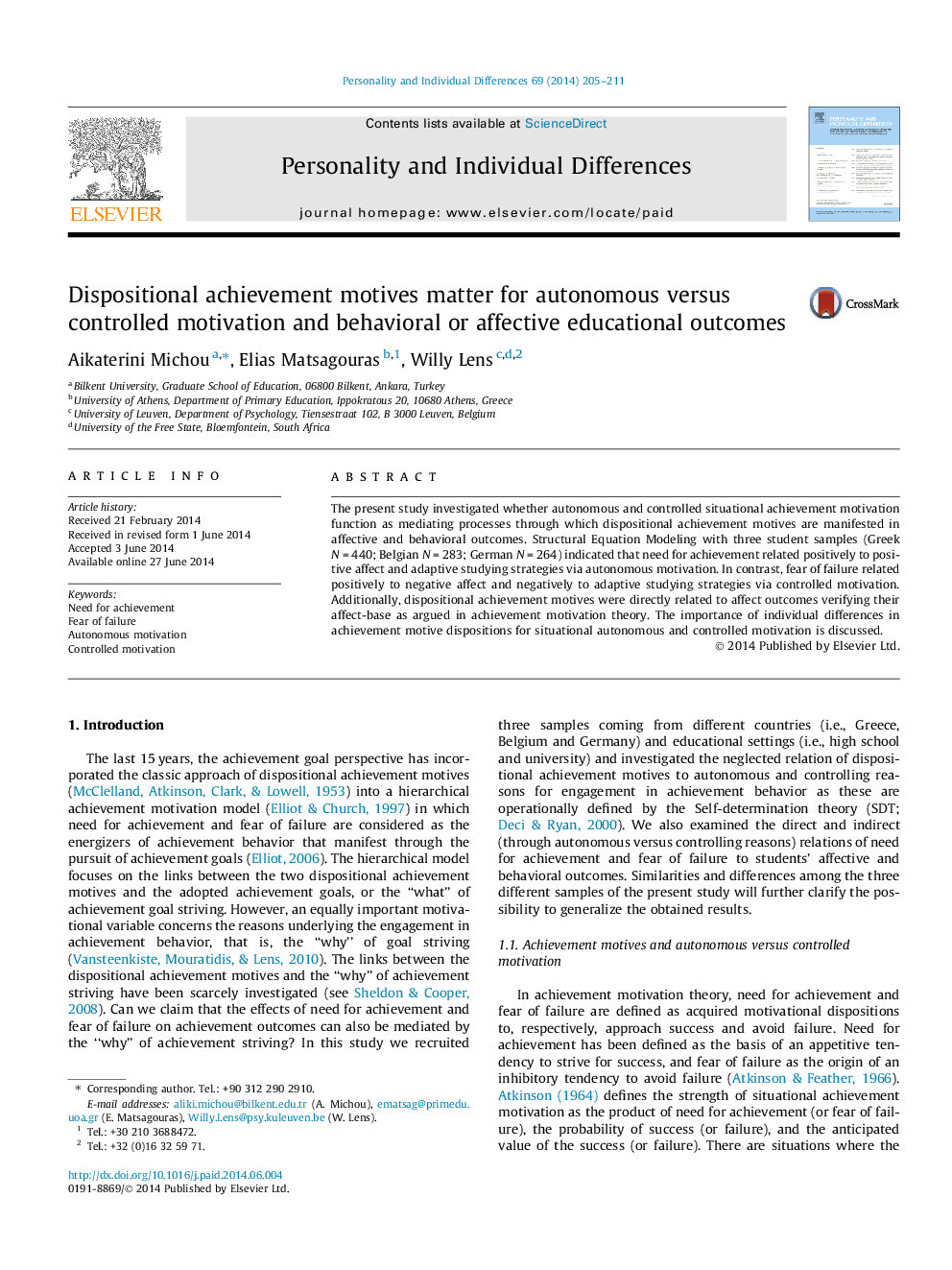| Article ID | Journal | Published Year | Pages | File Type |
|---|---|---|---|---|
| 890429 | Personality and Individual Differences | 2014 | 7 Pages |
•The relation of autonomous motivation with achievement motives was examined.•Three students’ samples of different countries participated in the study.•Need for achievement related to positive outcomes via autonomous motivation.•Fear of failure related to negative outcomes via controlled motivation.•Achievement motives were also directly related to affect outcomes.
The present study investigated whether autonomous and controlled situational achievement motivation function as mediating processes through which dispositional achievement motives are manifested in affective and behavioral outcomes. Structural Equation Modeling with three student samples (Greek N = 440; Belgian N = 283; German N = 264) indicated that need for achievement related positively to positive affect and adaptive studying strategies via autonomous motivation. In contrast, fear of failure related positively to negative affect and negatively to adaptive studying strategies via controlled motivation. Additionally, dispositional achievement motives were directly related to affect outcomes verifying their affect-base as argued in achievement motivation theory. The importance of individual differences in achievement motive dispositions for situational autonomous and controlled motivation is discussed.
